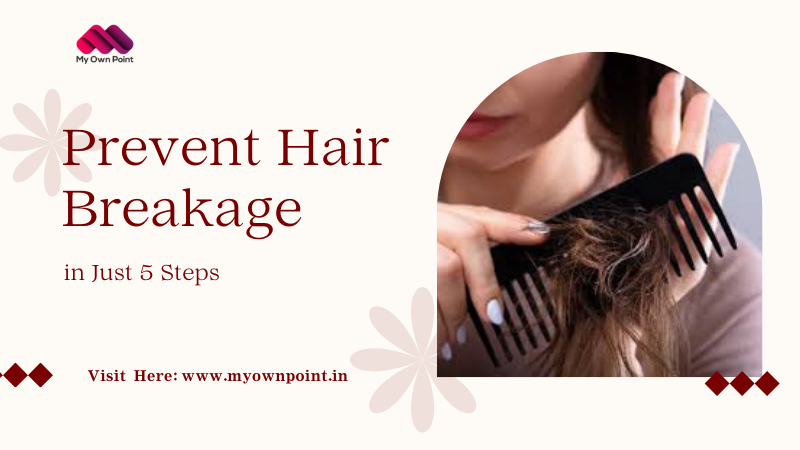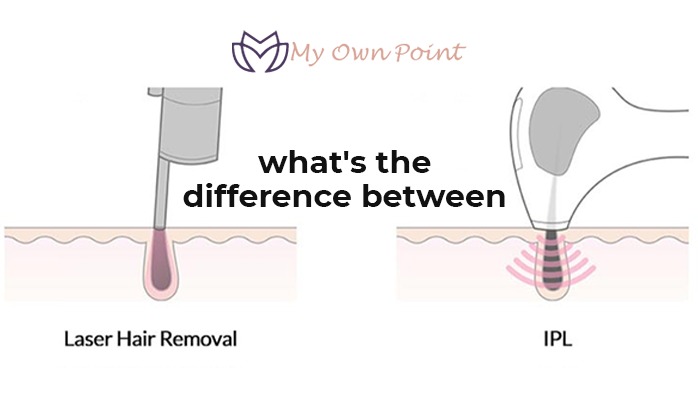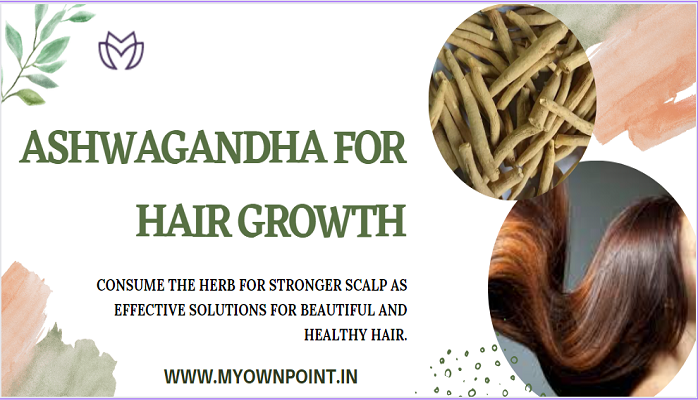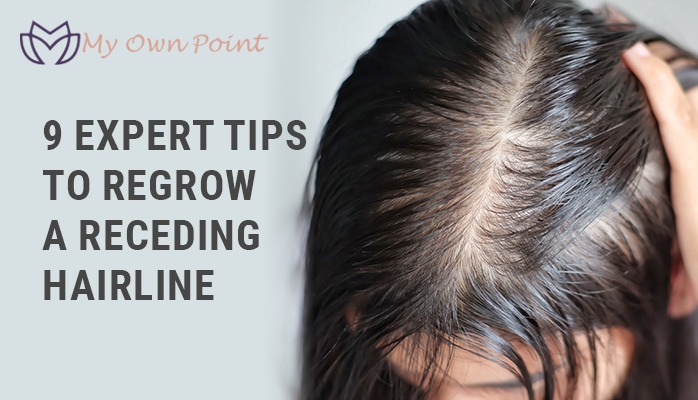Both men and women suffer from hair breakage due to various hairdressing practices or aging. All hair types become brittle due to stress, which can be either mechanical or chemical breakage. These can cause the hair to become frizzy either at the ends or at the coils closer to the crown and top of the head. In most cases, hair breakage is a temporary phenomenon that can be treated with a hair care routine by home remedies and other products to restore hair strength. Here, we are introducing 5 tips on how to prevent hair breakage in this article:
Also Read: Lose Weight in 15 Days With Jeera Water
What Deficiency Causes Hair Loss and Breakage?
What often goes unnoticed are internal factors such as poor nutrition. It can lead to vitamin and mineral deficiencies, weakening the hair roots, interrupting the hair growth process, and eventually leading to hair loss or breakage. Let’s talk about what vitamin deficiency causes hair breakage to ensure maximum hair strength.
1. Iron Deficiency (Anemia)
Iron is one of the most crucial minerals for overall health, and its deficiency is one of the most common causes of hair loss, particularly among women. It plays a vital role in transporting oxygen to the hair follicles through the bloodstream. When there is insufficient iron in the body, oxygen delivery to the hair follicles can be compromised, leading to hair thinning and shedding.
How Iron Deficiency Causes Hair Loss:
- Iron is essential for the production of hemoglobin, a protein in red blood cells that carries oxygen to tissues, including hair follicles. Without adequate iron, hair follicles become weak, and the hair growth cycle may slow down.
- Iron deficiency can cause telogen effluvium, a condition where hair prematurely enters the resting phase (telogen) and sheds excessively.
2. Vitamin D Deficiency
Vitamin D is a crucial nutrient that helps regulate the hair growth cycle. It aids in the creation of new hair follicles and stimulates the growth of existing ones. A deficiency in vitamin D can lead to hair thinning and contribute to conditions like alopecia areata, an autoimmune disorder that causes patchy hair loss.
How Vitamin D Deficiency Causes Hair Loss:
- Vitamin D receptors are found in hair follicles, and adequate levels of vitamin D are needed to maintain healthy hair growth. A deficiency can disrupt the hair growth cycle, leading to increased shedding and thinning.
- Studies have shown a correlation between low levels of vitamin D and various types of hair loss, including androgenetic alopecia (male and female pattern baldness).
3. Biotin (Vitamin B7) Deficiency
Biotin, also known as vitamin B7, is a water-soluble vitamin that plays a significant role in the health of hair, skin, and nails. Biotin supports the production of keratin, the primary protein in hair, and helps to strengthen hair follicles. A lack of biotin can lead to brittle hair that breaks easily, as well as thinning and hair loss.
How Biotin Deficiency Causes Hair Loss:
- Biotin helps in the synthesis of keratin, and a deficiency can impair hair production, leading to weak, brittle strands that are prone to breakage.
- In severe cases, biotin deficiency can result in alopecia, a condition marked by significant hair loss.
Also Read: Best Homemade Hair Masks for Repairing Damaged Hair
4. Zinc Deficiency
Zinc is a mineral that plays a key role in the maintenance of healthy hair. It is essential for protein synthesis and cell division, both of which are crucial for hair growth. Zinc also helps maintain a healthy immune system, which indirectly supports the growth of healthy hair.
How Zinc Deficiency Causes Hair Loss:
- Zinc is involved in the production of keratin, the protein that makes up hair. A deficiency in zinc can lead to poor hair growth, increased shedding, and the development of conditions like telogen effluvium.
- Zinc also helps regulate the production of androgens (male hormones) that can cause hair thinning, particularly in people with a genetic predisposition to hair loss.
5. Vitamin E Deficiency
Vitamin E is an antioxidant that protects hair follicles from oxidative stress and promotes blood circulation to the scalp, thereby supporting healthy hair growth. A deficiency in vitamin E can lead to scalp dryness, dandruff, and thinning hair.
How Vitamin E Deficiency Causes Hair Loss:
- Vitamin E helps improve circulation to the scalp, which nourishes the hair follicles and promotes healthy hair growth. A deficiency can weaken the hair follicles, leading to hair thinning and hair loss.
- Vitamin E also protects the scalp from damage caused by free radicals, which can damage hair cells and disrupt the hair growth cycle.
6. Essential Fatty Acids Deficiency
Essential fatty acids, particularly omega-3 and omega-6, are vital for maintaining healthy hair. These fats help nourish the hair follicles and keep the scalp hydrated. A lack of these essential fats can result in dry, brittle hair that is more susceptible to breakage.
How Essential Fatty Acids Deficiency Causes Hair Loss:
- Omega-3 and omega-6 fatty acids help maintain the scalp’s oil balance, preventing dryness and flakiness. Without these fats, the hair becomes dry and brittle, leading to breakage.
- These essential fatty acids also promote the overall health of the hair follicle, reducing the likelihood of hair shedding.
Also Read: Which oil is best for hair regrowth and thickness?
How To Prevent Hair Breakage Naturally? – 5 Tips
1. Drying and Hallowing of Hair with the use of appropriate Products
Specifically, dry hair is quite brittle and rather fragile. Thus, it is recommended that appropriate hydration is done by using the right supplements.
- Shampoo and conditioner: A drunk woman in this picture and look for dry and normal hair in the picture- the disclaimer does not give you a dry shampoo as conditioning does not seem to work. Most importantly, avoid any of these stress hair products. These vital stylists sprayed over the collar of one of the breakages and were oversaturated with strong ties into booking stilettos.
- Deep conditioning: once a week, treat yourself to a deep conditioning treatment or apply a hair mask. These treatments penetrate deep into the hair shafts, moisturizing and strengthening the strands. Favor masks with keratin, which help repair damaged hair and also help prevent hair breakage in the future.
- Leave-in conditioners and oils: After washing your hair, apply a leave-in conditioner or hair oil as a final step to maintain moisture levels. These products provide additional moisture so that the hair remains soft and elastic. They also protect the hair from excessive damage and heat treatment.
2. Limit Heat Styling And Shield From Damage
If flat irons, curling irons, and blow dryers are used too frequently or used the wrong way, they can be a major risk factor leading to hair breakage. Excessive temperatures dry out hair so that water is not present in the hair and makes it more prone to breaking and breaking.
- Limit Heat Styling: Depending on your schedule, you can use heat styling tools once or twice a week maximum. Alternatively, you can try using more natural hairstyles like braids or air-drying. If you must use heat styling for whatever reason, don’t forget to use a heat protect spray, which is designed specifically to protect your hair from high temperatures. The sprays make sure your hair is somewhat insulated from high heat.
- Use Low Heat Settings: When using styling tools, always try to use the lowest possible temperature settings. Some will even have to use the temperature settings, and the lowest heat required is the best to reduce the risk of burning your hair and weakening it. For example, let your blow dryer be on medium heat and don’t let the flat iron exceed 350 degrees Fahrenheit (175 degrees Celsius).
- Opt for Heatless Styles: Heatless methods like using Velcro rollers or silk scrunchies can also give you bouncy curls or waves, or braiding your hair when it is wet can even cause more damage. These methods take longer to produce amazing results which tend to be healthier and are gentler for your hair.
Also Read: Let’s Try Rosemary Oil for Hair Growth
3. Be Gentle When Detangling
Frequently, hair breakage occurs due to rough brushing or combing. Wet hair is the weakest; therefore, it needs to be treated gently.
- Use the Right Tools: You may wish to buy a wide-toothed comb or a detangling hair brush that are specifically manufactured to reduce breakage. These tools are more efficient at combing out knots and isolating the strands rather than pulling them all together. Refrain from utilizing very fine-toothed combs or brushes with hard bristles since they may pull and break the hair cuticles.
- Start from the Bottom: When attempting to detangle strands, this should be done in the following manner: from the very ends towards the roots. This method ensures that the strands don’t get pulled at the roots. Resistance should be lessened by letting the knotted and tangled areas get tampered with instead of forcefully yanking them off.
- Condition While Detangling: As an alternative, you may use a leave-in conditioner or a detangling spray so as to ease the process. These products give some lubrication, enabling the comb or brush to move through your hair with ease. In addition, they can also be of help in shielding the hair from being hurt due to friction.
4. Protect Your Hair While Sleeping
During sleep fringes of a pillowcase can cause your hair damage and breakage by tugging on some edges. Such friction added into tangling forming at night can mean servicing a lot of brushing during mornings. Brushing and other form of physical touch can easily lead to a certain form of rearrangement in these strands making snags easily. There are ways to sleep with hair that can lead to minimization of such forms of damage.
- Silk or Satin Pillowcases: Change pillow cases to silk or satin. These fabrics to the hair tend to lessen the caused friction because of how soft the fiber is thus reducing tangling and hair breakages. Whereas cotton has been noted in some cases to dehydrate hair by soaking up moisture, silk and satin have been found to be more preferable because it preserves the natural oils and moisture of hair making the hair less dry.
- Loose Hairstyles: Don’t tie your hair too tightly when going to bed, excessive pressure along the hair follicles in time is known to lead to breakages. Rather, aim at wearing tight braids or use a satin or silk scrunchy that can hold your hair strands in place with minimal pressure.
- Protective Hair Wraps: Another option is using a silk or satin hair wrap or satin bonnets that can easily hold hairs in place during overnight sleeping. These forms of protective accessories can serve a particularly significant role for curly hair or textured types as such varieties formed allow of retaining the natural curl pattern without add in tangling.
Also Read: Yoga Poses After Inguinal Hernia Surgery
5. Embrace a Balanced Diet and Lifestyle
Hair strands are healthy if the body that they grow in is healthy too. Lack of a balanced diet, excessive stress, and sleep deprivation may lead to weak and brittle hair. If you look after your body and provide the correct nutrients, then the hair can remain nourished from the inside and withstand the chances of damage.
- Eat Hair-Healthy Foods: Make sure that your diet has enough vitamins and minerals that are suitable for the growth and strength of hair strands. A few nutrients whose good amount is desired to keep the hair strong and healthy are:
- Proteins: As the majority of the hair is made up of a protein called keratin, you must ingest more protein, which can be obtained from lean cut meats, eggs, legumes, and nuts.
- Omega-3 Fatty Acids: Omega-3 fatty acids are natural skin conditioners, as they will keep the scalp moist and the hair follicles heated. Add fish like salmon, flaxseeds and walnuts to your diet.
- Iron: Among other necessaries that hair requires, it is impressive to note that iron is one of them. In the absence of iron in the body, it can be difficult to keep hair strands since it will lead to hair thinning and breakage. Be sure to intake meat, spinach and lentils, as they are rich in iron.
- Vitamins A and C: Vitamins A and C are important because Vitamin A and C are helpful for the production of sebum, which keeps the hair moist, preventing it from becoming brittle or susceptible to breakage. Carrots, sweet potatoes, citrus fruits, and bell peppers are particularly good sources.
- Stay Hydrated: When you become dehydrated, your hair may become dry and brittle. Because it is essential to keep both your hair and scalp hydrated, make it a point to consume enough water daily. At least 8 cups of water or more for people who do exercise or reside in a hot region is recommended.
- Manage Stress: Constant worry or challenges contributes to hair loss and breakage as they affect hormone production and hair growth cycles. Important to engage in activities that will help to ease tension like yoga, meditation or even frequent exercise. These activities help with blood circulation which nurtures growth of the hair.
Conclusion
So, as you see, hair breakage is a significant problem, and it can be totally avoided if a few essential tips are practiced. Such practices should definitely lead to less hair breakage and more potent and healthier hair strands. However, do not lose sight of the goal of hair care; consistency is essential. A good hair care routine can only require the right kind of care and treatment. In case of any abnormal shedding or hair thinning, please get examined by qualified medical professionals since it could be severe.
Also Read: 10 Amazing Cornstarch Benefits for Skin You Didn’t Know About




